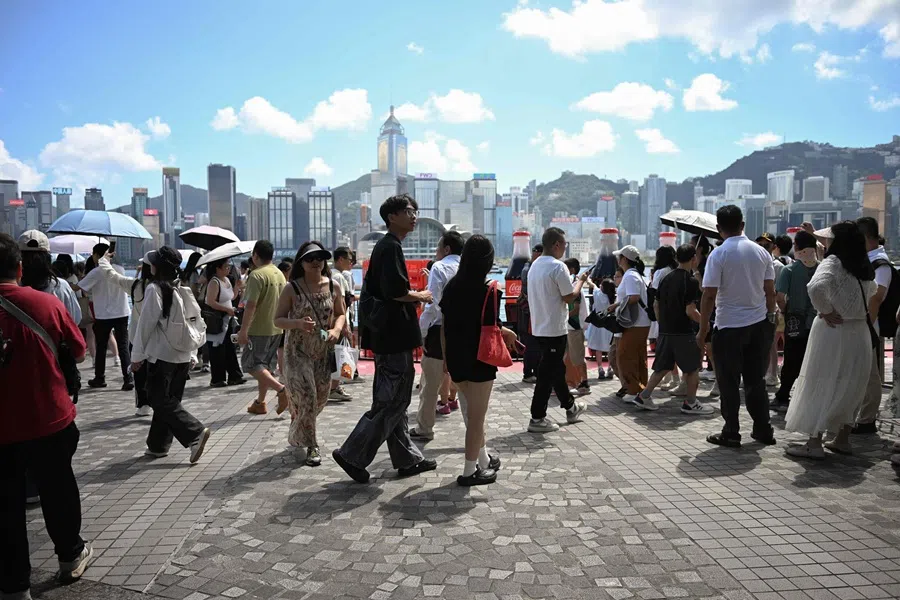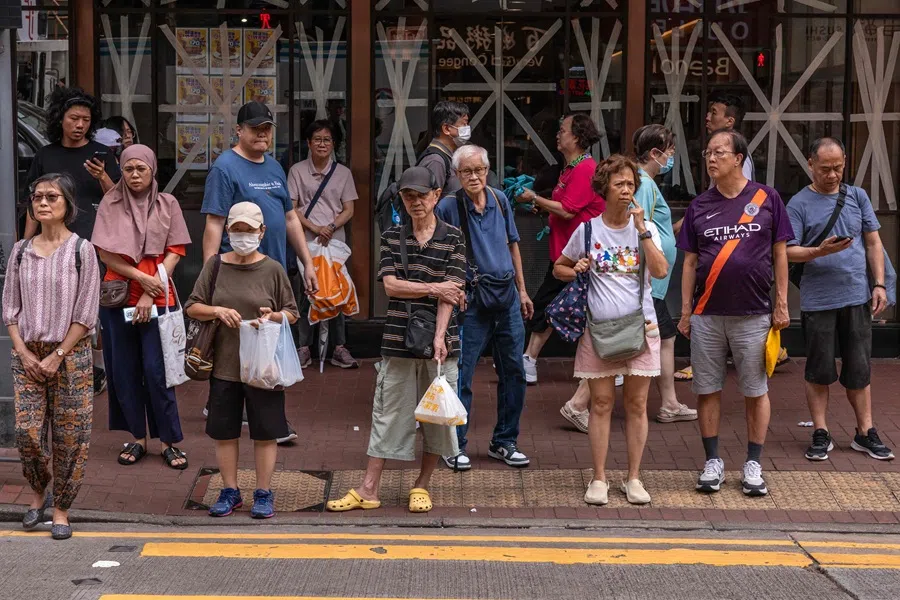Hong Kong isn’t falling — it’s rewiring itself for a fragmented world
Beneath the pessimism, Hong Kong is adapting fast. Its reinvention — spanning finance, talent and integration with mainland China — may prove decisive in a fractured global landscape, say AMRO economists Jae Young Lee and Jungsung Kim.

As global fragmentation reshapes trade, finance and investment flows, Hong Kong’s economic trajectory is once again under close watch. For a city long defined by openness and adaptability, the challenge is not simply to recover, but to renew. How Hong Kong navigates this transition will determine its place in the evolving global landscape.
This question will resonate widely later this month, when policymakers from ministries of finance and central banks convene in Hong Kong to discuss how to strengthen the ASEAN+3 finance process at this critical juncture. As regional economies seek to move “from fragmentation to resilience”, Hong Kong’s experience offers valuable insights into how agility, integration and institutional strength can underpin sustainable growth.
Shifting sentiment, emerging strength
In May this year, AMRO’s Hong Kong, China team conducted its Annual Consultation Visit (ACV) to Hong Kong. In recent years, sentiment about Hong Kong’s economic prospects became notably downbeat, as successive downturns caused by social unrest and the Covid-19 pandemic reinforced pessimistic perceptions of the city’s outlook. Some observers interpreted the prolonged stagnation of the Hang Seng Index and the persistent weakness in the property sector as signs of structural decline and waning relevance as an international financial and trading hub.
However, AMRO’s latest assessment presents a more balanced reality. Despite geopolitical tensions and domestic headwinds, Hong Kong’s economy has demonstrated notable resilience. While far from an inevitable decline, its future hinges on how effectively the city adapts to shifting global and regional dynamics.
Amid intensifying US-China tensions, Hong Kong’s role as a preferred fundraising platform for Chinese firms has strengthened.
Signs of a turnaround
Recent data suggest that Hong Kong’s economy is gaining momentum. The Hang Seng Index, led by a rebound in technology firms, has posted its sharpest recovery since late 2024, surging more than 30% from the start of 2025. Real GDP growth exceeded 3% in the first three quarters of 2025, supported by stronger exports and a continued rebound in the tourism sector, one of Hong Kong’s traditional economic pillars.

Amid intensifying US-China tensions, Hong Kong’s role as a preferred fundraising platform for Chinese firms has strengthened. As mainland companies shift away from US listings, equity funds raised in the city surged 322% year-on-year to reach HK$369 billion (US$47.1 billion) in the first eight months of 2025. These trends underscore Hong Kong’s continued role as a vital conduit for capital between China and the world.
Anchors of resilience
Three enduring features explain Hong Kong’s resilience.
First, its deepening integration with mainland China. Over half of Hong Kong’s trade is with the mainland, and more than 70% of inbound tourists come from there. Research by AMRO in 2025 finds that Hong Kong’s economic cycles now move more closely with China’s than any other external factor. As China maintains growth of around 5% this year, Hong Kong benefits through re-exports, logistics, trade finance and professional services.
Second, the stability of its financial and monetary systems has been a key factor enabling the city to preserve its competitiveness amid a wide range of external and domestic challenges. The Linked Exchange Rate System (LERS), in place since 1983, continues to anchor the Hong Kong dollar to the US dollar, providing transparency and credibility through a rules-based framework that has withstood multiple global shocks well — from the Asian Financial Crisis to the recent tightening cycle by the US Federal Reserve. The LERS framework remains a cornerstone of investor confidence and macroeconomic resilience.
Hong Kong’s unique position of linking mainland China with the rest of the world is not a slogan but a structural function built over decades.

Third, its role as a “super-connector”. Hong Kong’s unique position of linking mainland China with the rest of the world is not a slogan but a structural function built over decades. It offers an unrivalled professional ecosystem of financial services, legal expertise, risk management and due diligence. Conversely, mainland enterprises aiming to internationalise often use Hong Kong as a testing ground to enhance their competitiveness in a fully open market.
Headwinds amid recovery
Despite emerging tailwinds, significant headwinds continue to exert pressure. Given its high degree of openness, Hong Kong remains vulnerable to global risks. The most immediate challenge is the rising wave of protectionism and the potential slowdown in global trade. Domestically, the real estate sector — particularly the office market — remains subdued, while concerns over weakening consumption persist.
As economic integration with mainland China deepens, structural shifts in household spending behaviour among Hong Kong residents — including more frequent visits to nearby mainland cities on weekends and for short trips — are likely to become increasingly entrenched.
Over the longer term, an ageing population and the consequent decline in growth potential are expected to pose the most formidable challenges. Without effective policy responses to these issues, pessimistic views surrounding the city’s economic outlook could resurface at any time.
... ongoing talent attraction initiatives should be further strengthened and enhanced with greater inclusivity to reinforce the city’s long-term competitiveness.
Staying relevant in a fragmented world
As countries reorganise supply chains and form regional blocs, global connectivity is set to evolve rather than diminish. Hong Kong’s economic relevance lies precisely in its capacity to operate at this intersection — linking capital, information and talent across borders even as others turn inward.

To remain a leading international financial centre, the city must continue to defend the openness and rules-based environment that underpins its success. Sustaining that credibility requires deepening its strengths and leadership in offshore RMB business, green and digital finance, and cross-border capital intermediation.
Equally important is talent. Enhanced integration with both the global economy and the mainland can also help mitigate ageing-related pressures in the longer term. Hong Kong’s open and internationally connected environment serves as a strong incentive for top global talent to relocate to the city. In this context, ongoing talent attraction initiatives should be further strengthened and enhanced with greater inclusivity to reinforce the city’s long-term competitiveness.
No single global trend or economic cycle can define Hong Kong’s future. Indeed, the more fragmented and uncertain the world economy becomes, the more valuable a free, adaptive and rules-based market hub like Hong Kong will be.






